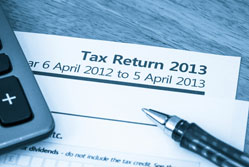News
October 18, 2013
Online tax system "daunting" for micro firms
 The shift from paper records to digital tax systems is proving challenging for many micro businesses and self-employed individuals, according to research by the Association of Accounting Technicians (AAT).
The shift from paper records to digital tax systems is proving challenging for many micro businesses and self-employed individuals, according to research by the Association of Accounting Technicians (AAT).
The survey found that 39% of Britain's micro businesses (with less than ten staff) and the self-employed say they feel excluded and lack the resources and understanding to keep up with new digital tax systems.
More than two thirds (68%) think the tax system is becoming more digitally focused and 29% have had to start using third party accountancy support in order to cope. In addition, 20% of respondents said the process of completing a tax return should be simplified. A similar number (21%) believe that larger businesses are advantaged as they have more resources to spend on specialist help.
Research conducted earlier in the year by AAT found that these changes are costly to small business owners – not only financially but administratively. Now, the latest research suggests that the requirement to bring everything "online in real time" is increasing the burden.
Paper records are still being used by some SMEs – with one in ten saying that they filed their latest self-assessment tax return using the paper filing method despite the incentive of a later deadline for electronic returns. Of those, 72% were capable of doing it online, but preferred the traditional approach.
Adam Harper, director of professional development at AAT, said: "It's clear that conducting one's tax affairs online is a time-consuming and daunting process for some, and this has caused many micro businesses to either stick to old methods that they are more comfortable with or seek third party support."
He added: "While reporting digitally and in real time will be hugely beneficial in the long-term; we do have to cater to the fact that not all small business owners are digitally as engaged as others. If we want an 'entrepreneurial UK' in which start ups thrive, then we need to simplify the process and offer more support to those that need it, and ensure that 'tax isn't taxing'."
Anthony Thomas, chairman of the Low Income Tax Reform Group (LITRG), commented: "We believe that Government has wholly underestimated the extent of the difficulties experienced by many small and micro businesses in going online."
Related resources:






